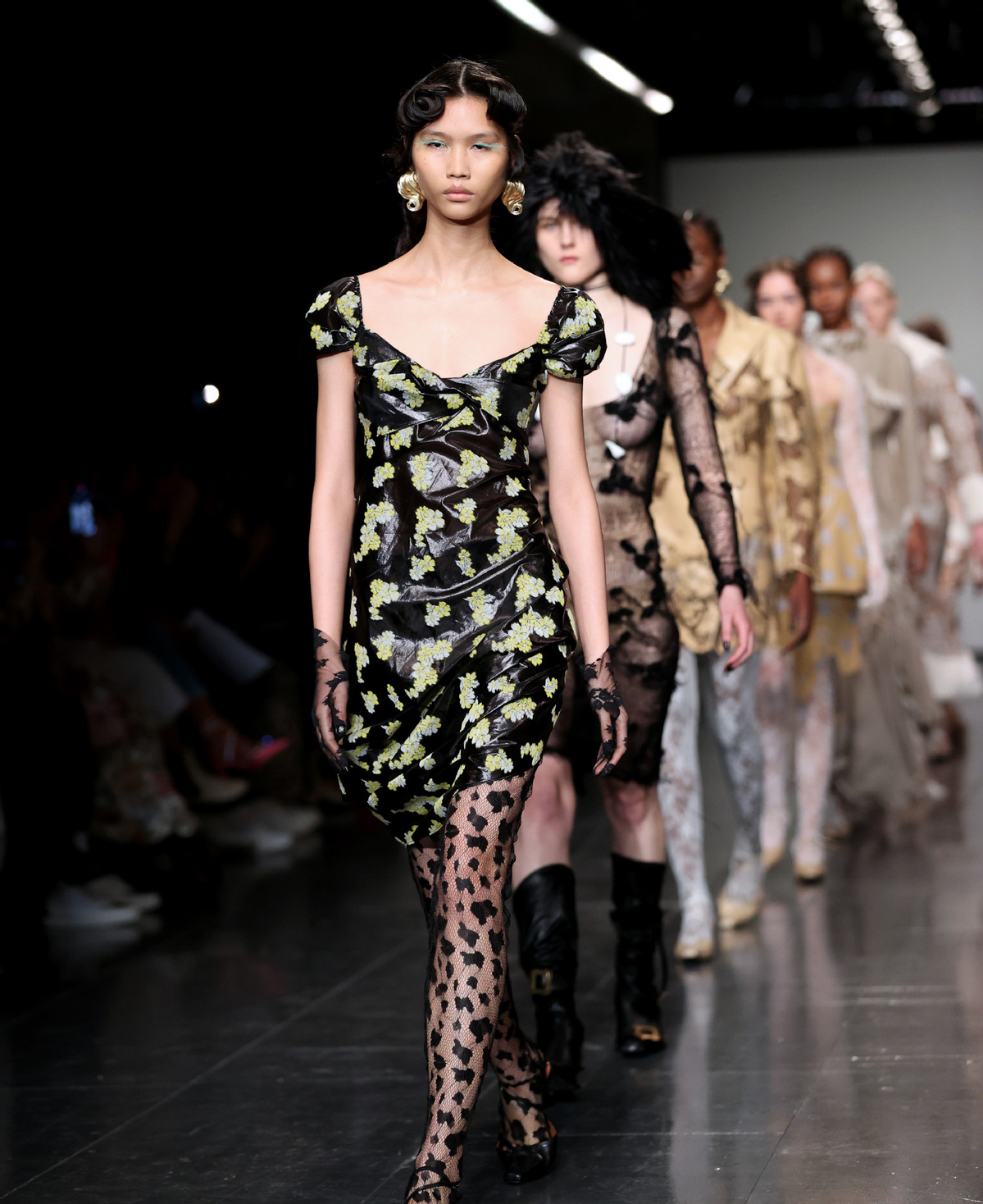

Emerging Chinese designers made a big splash at London Fashion Week by fusing silk embroidery, imperial heritage and faux leathers to change the face of the industry while promoting more diversity and sustainability in the business.
The major clothing trade show, which took place from Feb 18-22 in a hybrid digital and physical format, is witnessing a new phenomenon: the arrival of an increasing number of Chinese designers and fashion models.
Showcasing her autumn/winter menswear 2022 collection, Ning Yuan, founder of Chinese streetwear brand Ning Dynasty, said she was inspired by imperial history and pop culture.
"I really wanted to combine the luxury element, the travel element, and the party element all in one to create an amazing product that showcases thousands and thousands of years of the history of China. It was really important for me to restore that pride within my ancestry," she told Xinhua before her first-ever runway show.
Using pure silk and digital prints, she founded the brand in 2021 amid the COVID-19 pandemic to bring a Chinese voice to the fashion business.
"We wanted to create a fun, chic yet trendy way to digest imperial culture while making pieces that we can celebrate, we can travel with, we can enjoy music with," said the young Chinese designer.
Known as the "Guochao" or "national wave" trend, China has been witnessing a rise in trendy and homegrown Chinese fashion labels in recent years, which combine traditional and new elements and have turned "Made in China" into "Designed in China."
"For me, the power comes from the diversity. We should be proud to be ourselves," Wang Yuhan, another Chinese designer, told Xinhua in the backstage area while models from all walks of life and nationalities were busy changing their outfits.
Wang established her London-based womenswear brand in 2018 and was awarded the first runner-up of the L'Oreal Young Talent Award in 2016 for her bachelor collection. She has also been shortlisted for the 2020 LVMH prize.
"All the industry and talents have been supporting me. I feel very lucky," Wang said.
Wang presented her "Venus in Furs" collection over the weekend, featuring classic floral jacquards and delicate lace pieces. Wang said more diverse voices from different backgrounds are needed in the industry.
Wang also stressed that sustainability was also at the forefront of her creations and that all cotton used is recycled while the faux leather has been sourced by a local supplier and reused.
Meanwhile, Ning Dynasty's Yuan emphasized that the time had finally come for young Chinese designers to showcase their skills on Western catwalks and to the world, too.
However, while Chinese designer brands are enjoying increased global recognition and a surge in sales, there is still a long road to travel before becoming household names in the West.
A report by the All-Party Parliamentary Group for Textiles and Fashion last July showed that 75.4 percent of participants in Britain believe that the fashion industry does not represent a spectrum of diverse bodies and identities, while 87.5 percent said they did not feel represented in advertising campaigns, fashion shoots and on the catwalk.
"It has been hard to make it to here, but now Chinese people can really own that pride, to actually create a brand and showcase their talent and be part of the London Fashion Week system," Yuan said. "I'm really proud and I'm really happy to see so many representatives."